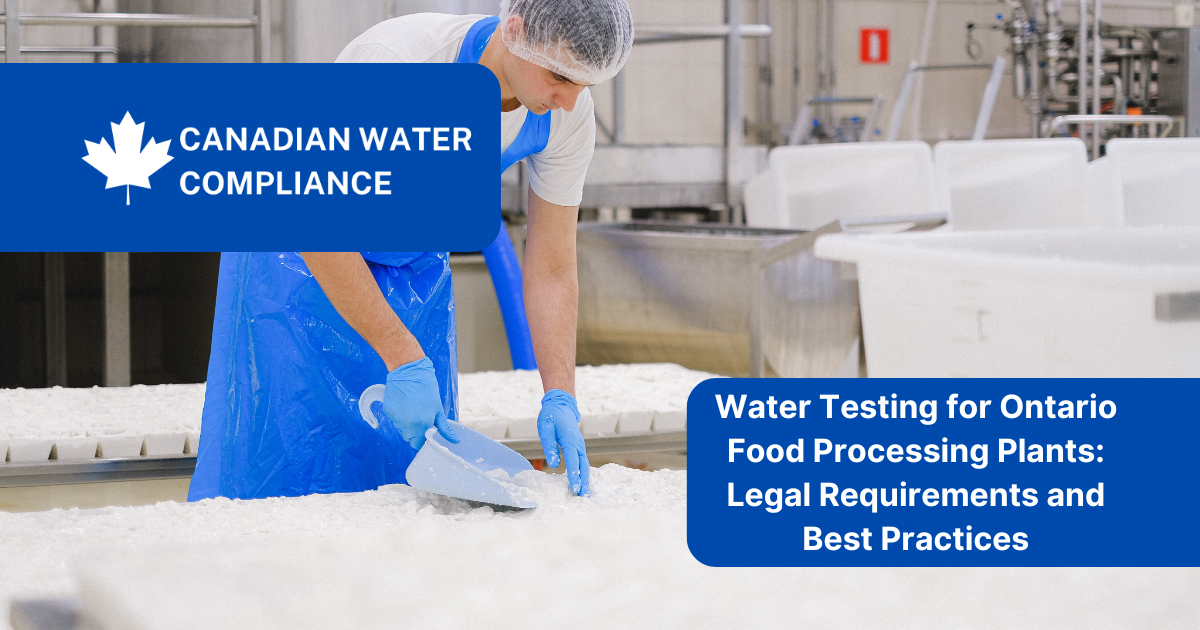
Written By: Canadian Water Compliance | On
In Ontario, food processing plants are under strict scrutiny when it comes to water safety. Whether water is used as an ingredient, for cleaning surfaces, or in cooling systems, it must meet provincial and federal safety standards. Contaminated water can lead to severe consequences, including product recalls, regulatory penalties, or public health risks.
Here’s what food manufacturers, plant managers, and facility operators in Ontario need to know about their water testing obligations—and how to stay compliant.
Water can serve as a vehicle for bacteria like E. coli, Salmonella, and Listeria, or introduce harmful chemicals and heavy metals into food products. In processing environments, water may come into direct contact with raw ingredients, machinery, packaging equipment, and finished goods.
Contamination at any point in the production process can compromise the integrity of the entire batch, costing companies both money and consumer trust. That’s why both Health Canada and the Canadian Food Inspection Agency (CFIA) mandate rigorous water testing protocols for food processing environments.
Food processing plants must ensure that all water used in production meets the criteria for potable water. This includes testing for:
Microbiological parameters (E. coli, total coliforms)
Chemical parameters (e.g., lead, nitrate, sodium, chlorine levels)
Physical parameters (e.g., turbidity, colour, temperature)
If the plant uses well water or draws from a private source, Ontario’s O. Reg. 170/03 and municipal requirements may also apply. In such cases, additional frequency and scope of testing are typically mandated.
Facilities must also document all test results, ensure timely sampling, and address any exceedances immediately through treatment, retesting, or corrective action.
There is no one-size-fits-all schedule for water testing, but general best practices include:
Weekly or biweekly testing for microbial contaminants
Quarterly chemical and physical parameter testing
Annual comprehensive water quality assessments
Additional testing whenever plumbing systems are changed, or production is modified
If a food processor operates under a HACCP plan, water testing schedules and parameters must align with critical control points and risk levels identified in the plan.
Non-compliance with water quality standards can result in:
CFIA enforcement actions and possible shutdowns
Fines and penalties under the Safe Food for Canadians Regulations (SFCR)
Product recalls or consumer advisories
Damage to brand reputation and export capabilities
Proactive testing is more than a legal obligation—it’s a cornerstone of food safety and operational integrity.
Canadian Water Compliance provides:
Certified sampling and accredited lab analysis
Ongoing water quality monitoring packages
Emergency response testing and incident investigation
Expert consultation to align with CFIA, Health Canada, and HACCP standards
We help facilities meet both federal and provincial water safety requirements with confidence, minimizing risk and helping you maintain full compliance with industry regulations.